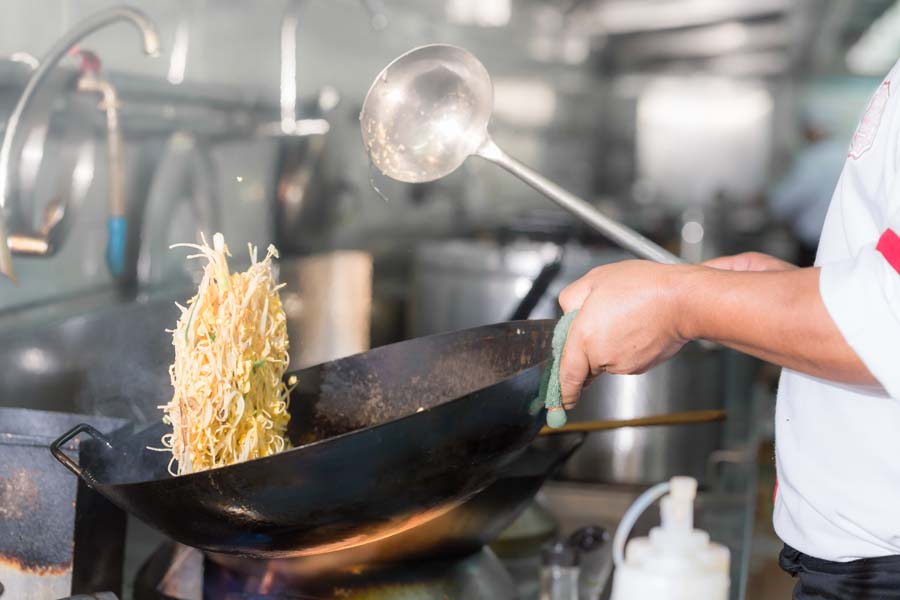Kitchen training is the process of acquiring knowledge and skills in various culinary techniques and food preparation methods, typically undertaken in a professional kitchen setting. This training equips individuals with the necessary expertise to work efficiently and effectively in kitchen environments, such as restaurants, hotels, or catering establishments.
It involves learning about food safety practices, mastering knife skills, understanding recipe creation, and developing a deep understanding of different cooking methods. Kitchen training allows individuals to gain hands-on experience, refine their culinary abilities, and develop a strong foundation in the culinary arts.
By immersing themselves in this training, aspiring chefs and culinary professionals can enhance their career prospects and excel in the fast-paced world of food service.

Credit: mortonfoodservice.com
Benefits Of Kitchen Training
Kitchen training offers numerous benefits for individuals looking to enhance their culinary skills. It focuses on improving their knowledge of food safety, ensuring that they are equipped with the necessary expertise and precautions to handle and prepare food properly. This training also aims to develop efficiency in kitchen operations, equipping individuals with the necessary skills to streamline processes, increase productivity, and reduce waste.
As they learn various techniques and strategies to optimize kitchen operations, individuals can enhance their cooking abilities, allowing them to create delicious and high-quality dishes. Moreover, kitchen training helps individuals gain a deeper understanding of ingredient selection, food storage, and preparation methods, empowering them to consistently deliver exceptional meals.
By honing their culinary skills and becoming well-versed in kitchen operations, individuals can excel in the culinary industry and pursue successful careers as chefs or cooks.
Types Of Kitchen Training Programs
Kitchen training refers to the various programs designed to teach individuals the skills and knowledge necessary for a career in the culinary industry. One type of kitchen training program is offered by culinary schools, where students can enroll in comprehensive programs that cover everything from basic cooking techniques to advanced culinary skills.
Another option is apprenticeships, where aspiring chefs work alongside experienced professionals to gain hands-on experience in a real kitchen environment. Additionally, on-the-job training is another avenue for individuals to learn kitchen skills while working in a restaurant or foodservice establishment.
Each of these programs provides aspiring chefs with unique opportunities to develop their culinary abilities and pursue successful careers in the kitchen. Whether through culinary school, apprenticeships, or on-the-job training, kitchen training programs offer individuals the chance to turn their passion for cooking into a fulfilling profession.
Important Skills Taught In Kitchen Training
Kitchen training is a valuable way to learn essential skills for culinary success. Knife skills are emphasized, teaching precise and safe cutting techniques. Cooking techniques are also covered, focusing on various methods like grilling, baking, and sautéing. The training includes menu planning and recipe development, allowing aspiring chefs to create flavorful and balanced dishes.
Food presentation and plating are taught to create visually appealing meals. Time management and organization skills are essential in a fast-paced kitchen environment. With these skills, aspiring chefs can confidently navigate the demands of a professional kitchen and create delicious culinary masterpieces.
Experience comprehensive kitchen training and unlock your full culinary potential.
Frequently Asked Questions
What Is Kitchen Training?
Kitchen training refers to the process of acquiring the necessary skills and knowledge to work in a professional kitchen. It involves learning cooking techniques, food safety protocols, menu planning, and culinary creativity. Kitchen training is essential for individuals pursuing a career in the culinary industry.
Why Is Kitchen Training Important?
Kitchen training is important as it equips individuals with the necessary expertise to work efficiently and safely in a kitchen environment. It helps develop fundamental culinary skills, such as knife handling and food preparation techniques. Furthermore, kitchen training instills knowledge of food safety practices, ensuring hygienic food handling and preventing foodborne illnesses.
How Long Does Kitchen Training Typically Last?
The duration of kitchen training can vary depending on the program and individual preferences. Training programs can range from a few weeks to several months, depending on the level of expertise desired. It is essential to choose a training program that aligns with personal goals and provides a comprehensive curriculum for a well-rounded culinary education.
Conclusion
Kitchen training is crucial for individuals seeking to excel in the culinary industry. It equips aspiring chefs with the essential skills and knowledge required to navigate the fast-paced and demanding environment of a professional kitchen. Through hands-on experience, trainees learn the fundamentals of food preparation, handling kitchen equipment, and managing their time effectively.
They also gain an understanding of basic cooking techniques and recipe execution. Moreover, kitchen training fosters teamwork, as trainees collaborate with their peers and mentors to create culinary masterpieces. By honing their abilities and constantly pushing their limits, aspiring chefs can rise above the competition and make a name for themselves in the culinary world.
Whether one dreams of becoming a renowned chef or managing their own kitchen, kitchen training is the foundation upon which success is built. So, if you have a passion for cooking and aspire to turn it into a career, kitchen training is the first step towards achieving your goals.

Leave a Reply